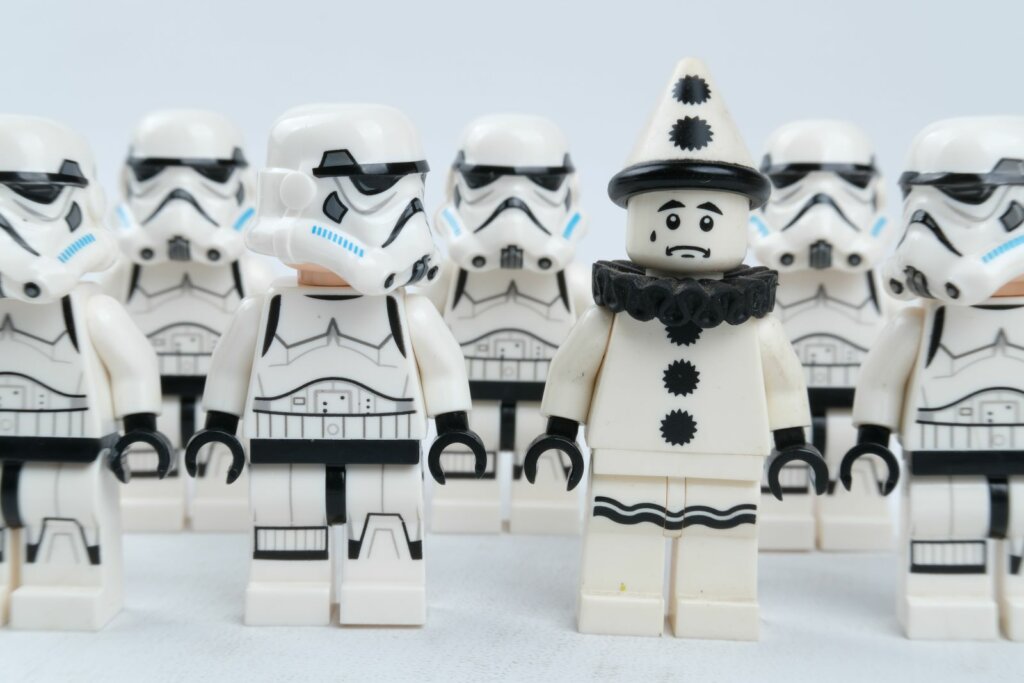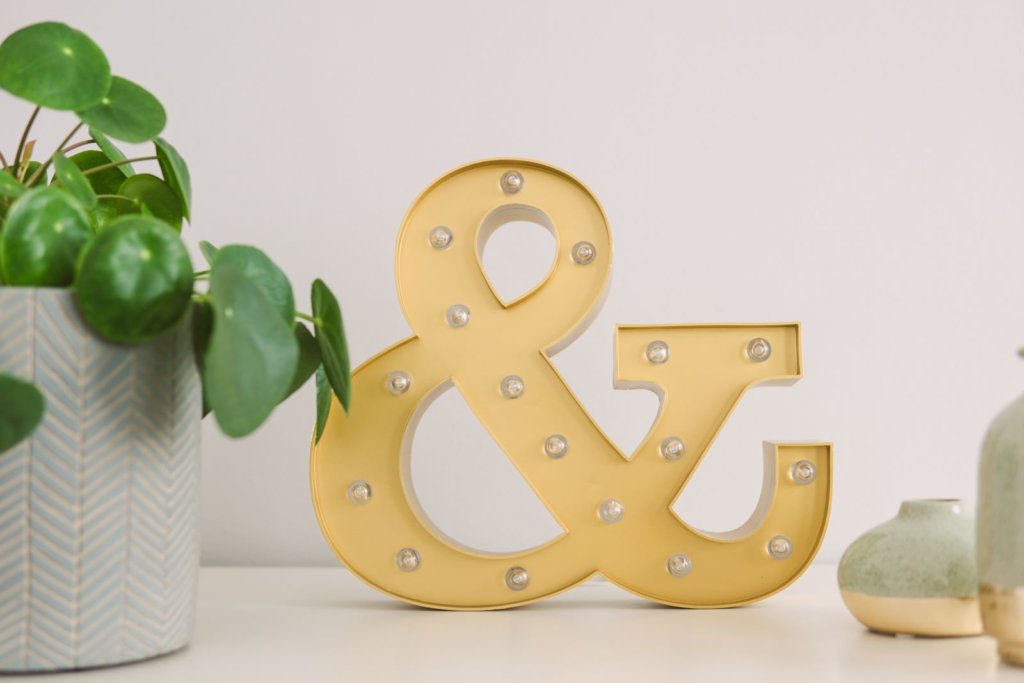When I was 7, there was a boy in my first-grade class that I didn’t like. I don’t remember why, his name, face, or any identifying features, but what’s seared into my brain is how I treated him on Valentine’s Day. It’s standard practice to give all the kids in your class a Valentine and for this boy, I decided to let him know how I really felt about him. I took out a piece of notebook paper and wrote, “I hate you, I hate you, I hate you, I hate you, I hate you,” until I ran out of space. But that didn’t feel like enough so I asked my brother, “What’s a word that means over and over again?” and he responded, “Et cetera,” which of course I didn’t know how to spell.
So at the end of a page filled with “I hate yous” I tacked on an “etc.” I tucked the paper into an envelope and signed my name so he would know it was from me. The next day I watched his face crumple reading my “Valentine.” He showed the piece of paper to our teacher and she said, “I’m sure she didn’t mean it.” I remember feeling mixed emotions because I did mean it. I did hate him but at the same time, I didn’t expect him to respond the way he did. In my mind, he was a monster, incapable of emotions, but seeing how hurt he was gut-punched me.

Peace is possible if we do the internal work. Photo by Sunguk Kim on Unsplash
As a 7-year-old, I wasn’t thinking about how this little boy would feel. All that mattered was expressing how I felt because I was the wronged party. He was mean to me. What I did to this little boy is what some people are doing now – they are only thinking about how they feel, not the impact their words will have on other people. What I also did to this boy is I dehumanized him. As a 7-year-old, there weren’t dangerous consequences to my perception but that’s not true for adults.
When you perceive a human being as an animal or a monster that must be destroyed, you will put them in a cage. You will bomb the crap out of their homeland. You will decapitate them and their family. You will do whatever it takes to show them how you feel without considering how they feel.
It’s worth mentioning that balance is important. There is such a thing as considering someone else’s feelings too much and that’s known as codependence. By and large though, we’re suffering from a lack of empathy, not too much of it. As a highly sensitive person, I’ve been crying about the ugliness in the world. It feels not great to read people are saying, “Gas the Jews!” and “Wipe Gaza off the face of the Earth!” Have we forgotten, just like I did, that words hurt? They don’t leave a visible mark like bruises do but can ring in your ears long after a physical injury has healed.
What do we do about this? How can we remember each other’s humanity when it feels so very challenging? There’s a Nonviolent Communication (NVC) exercise called simply “the exercise” that is so powerful for this. It’s a way to shift your inner landscape closer to connection, compassion, and peace. Any movement in that direction is a win so don’t worry if you’re not suddenly filled with peace after doing it.
I know it’s easy to let anger fuel us, I’m guilty of that myself, but if you have even a modicum of a desire to create a peaceful planet that goes beyond the limits of small social identities, I encourage you to do the exercise I linked to. Not only that, share it with your friends. As humans, we don’t have to give in to our baser instincts. There is another way. We can move toward peace but it requires more than a ceasefire. It requires us to view each other differently.
I dream of a world where we recognize how dangerous it is to only think about how we feel and not how others feel. A world where we don’t let anger and hatred fuel us. A world where we do the work to see others as human beings no matter how hard it is. A world where we all work together to move toward peace.
Another world is not only possible, it’s probable.
In April, I wrote a blog for my professional website called “Maybe It’s You” about how I realized after getting rejected by every single literary agent I queried that maybe the problem was me. This is the companion piece to that blog recognizing maybe it’s not me that’s the problem; maybe it is the other person.
When it comes to interactions with other people that go awry, I frequently place the blame on myself. “What did I do wrong? Should I have said XYZ instead?” Call it a carryover from being labeled “weird” my whole life and struggling to fit in. Who knows? Regardless, when other people are unhappy, frustrated, uncomfortable, etc. I am quick to take responsibility.
In one of my recovery programs, there are two sayings that feel apt right now: “You are probably not guilty” and “You can be healthier than those around you.” Both of those statements are revelations. Typically, I’m my own worst critic playing judge, jury, and executioner before you can blink. I’m probably not guilty? It’s possible I didn’t do anything wrong? Really?
For the other saying, that I can be healthier than those around me, it’s also hard to wrap my mind around. As someone who is in recovery, seeing a therapist, and generally working on herself, I have this perspective that I’m the sickest person in the room. Everyone else knows what they’re doing, they’re normal, they’re fine. I’m the problem. The irony is after doing all this work on myself it’s become the opposite: In some situations, I am healthier than those around me because I know how to handle my own emotions. For instance, instead of asking you to stop feeling a certain way so I can feel better, I recognize when I’m activated and can do the work to process that.
Because I’ve done so much work on myself to heal my wounds and become emotionally mature, I forget not everyone else is like that. I forget someone can say, “I don’t like the way you did that” and it truly has nothing to do with me. The other person is triggered and trying to place all the blame on me instead of taking ownership of themselves. It’s so very easy to do in our society and we see evidence of this all the time.
Just a few days ago people advocated boycotting Hershey because the company featured a trans woman in an ad. Instead of dealing with their discomfort over trans people, conservatives said, “Boycott.” Why are they upset? I truly don’t understand because if they don’t want to be a trans woman, they don’t have to be, but anyway, instead of processing the discomfort within themselves, Hershey became bad and wrong. Is Hershey the problem here? Given my progressive bent, of course I say no, they aren’t.
This blog is a reminder to me and to anyone who needs to hear it that as much as you resonate with Taylor Swift’s song “Anti-hero,” maybe you’re not the problem. Maybe it’s not you. Maybe the other person is triggered or hasn’t dealt with their own discomfort or has unrealistic expectations or is scared of vulnerability or. . .Maybe you didn’t do anything wrong and in fact, you are the healthier person in the situation.
I dream of a world where we recognize sometimes we aren’t the problem; sometimes it’s the other person. A world where we understand we can be healthier than those around us. A world where we remember other people get triggered and haven’t dealt with their wounds and that’s on them no matter how much they try to place the blame on us.
Another world is not only possible, it’s probable.
Sometimes I have temporary amnesia in that I forget how much can change in a day, an hour, an instant. If I feel blue, I think I’ll always feel blue. If I feel happy, I think I’ll always feel happy. I pretend a state of being is permanent when in reality, it’s anything but. For instance, I’ve been hawking my bank account, just waiting for payments to come in. I started to fret about what I would do if I didn’t get paid, the steps I would take. And then, cha-ching! The money arrived! Hallelujah! I literally danced with joy.
But the opposite also happens. I can cruise along, feel that all is right in the world, and then receive a text message that a friend died. Before receiving the news, I could have been smiling, but after reading the text I would start crying. Emotions are like this. They’re energy in motion. I rarely remember that though because I’m either chasing the happy, feel-good emotions, or I’m pushing away the sad, feel-bad emotions.
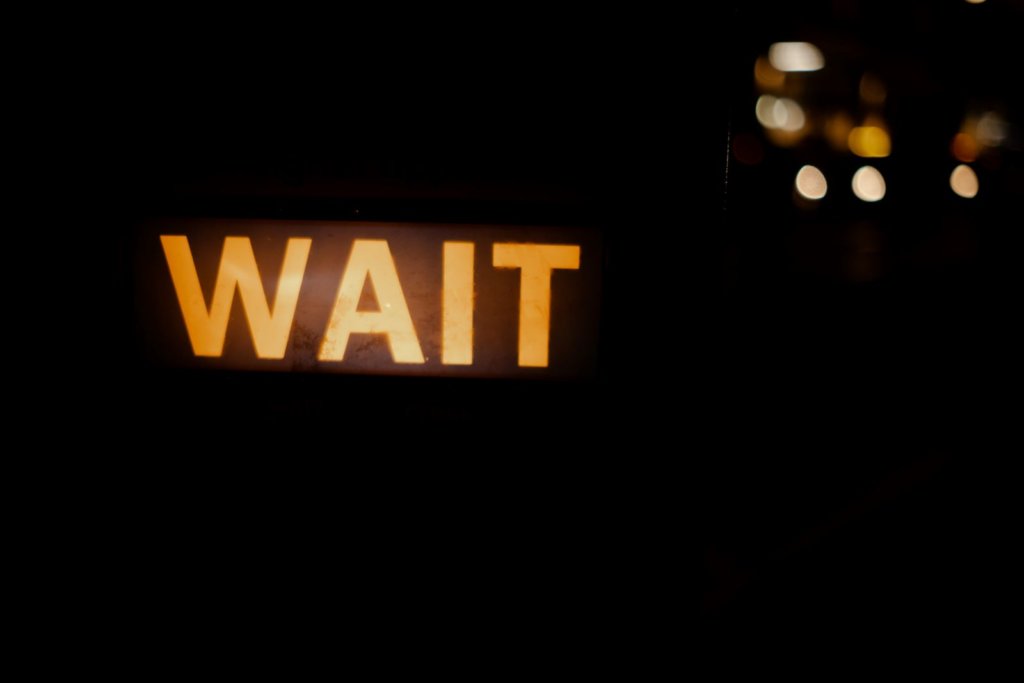
Wait it out. Photo by Semyon Borisov on Unsplash
Our society does this too. We are encouraged to buy things – shoes, a phone, a car – or use drugs – alcohol, weed, ketamine – to chase away the pain. Our brains encourage this sort of behavior because they are in a perpetual quest for more dopamine, the feel-good, “more” molecule. But instead of trying to create a feeling, what if we just … waited? What if we instead recognized everything, EVERYTHING we’re feeling is temporary?
The temporary nature of life is on my mind because I wasn’t speaking hypothetically about receiving a text message notifying me of a friend’s death. That happened. I saw him on a Zoom call and then two days later he died of Parkinson’s. It’s surreal to me how quickly things can change. And my friend’s death is shaking me up because he was a staple of my childhood. Someone who was always around. I took it for granted he would continue to be, even after he got sick because I forgot everything is temporary.
My spiritual teacher says, “This expressed universe is nothing but a collection of temporary entities which are undergoing constant metamorphosis according to the sweet will of nature.” We are all temporary entities and we are all constantly changing. Nothing stays the same. Nothing. When I remember this, every emotion becomes easier to bear; every experience becomes richer precisely for its impermanence.
This isn’t a profound post, I’m not revealing a truth you don’t already know, but maybe like me, you forget. Maybe you forget the person next to you is not immortal and neither are you. Maybe you forget the pain you feel will end. Maybe you forget at any moment you can feel euphoric because you received good news. Instead of chasing after a feeling, what if we pulled back a little, practiced more detachment and surrender, and understood all we have to do is wait? Because even if it doesn’t seem like it right now, you’ll feel great again soon. I promise.
I dream of a world where we understand emotions are constantly changing. A world where we realize we can’t force ourselves to feel one way or another and we stop trying. A world where we understand if we just wait, we’ll feel great again.
Another world is not only possible, it’s probable.
My friend Kat Nadel, a Nonviolent Communication (NVC) facilitator, mentioned she’s writing a blog about eight things NOT to say to Ukrainians right now. One of those things is including the words “at least” anywhere in your response. For instance, if a Ukrainian says, “My 12-year-old niece had to travel by herself to Romania and now she’s sheltering at a refugee camp all alone,” and you say, “That’s terrible! At least she’s safe.”
Saying “at least” is discounting the experience, feelings, and perspective of the person sharing. “At least” never makes anyone feel better. It’s not connective, it’s not empathic. I know we’re encouraged to look on the bright side of things, to be grateful, and I agree with those practices, BUT not at the expense of emotional connection. And that’s what saying “at least” does. It puts distance between you and whoever is sharing.
We have a name for this practice: toxic positivity. It’s “dismissing negative emotions and responding to distress with false reassurances rather than empathy,” according to UW Medicine. “It comes from feeling uncomfortable with negative emotions. It is often well-intentioned but can cause alienation and a feeling of disconnection.”
Yep. Sure does. It’s also interesting for me to realize that not only do we “at least” other people, we also “at least” ourselves. I’ve done that for the past few weeks. Whenever I’ve been irritated or concerned about something – my shoulder hurting, waiting on money from clients, wishing I wasn’t so tired, etc. – I’ve said to myself, “Well at least I’m not in Ukraine.” It’s true, I’m not in Ukraine, but that doesn’t make the pain I feel in my shoulder dissipate. Instead, I feel bad that I feel bad.
The thinking goes, “I ‘shouldn’t’ feel what I’m feeling because other people have it so much worse.” And yes, they do, but why does it have to be a competition? Why can’t I feel heartbroken, worried, and shocked about the situation in Ukraine while also feeling dismayed, sad, and concerned about my shoulder? I can! Both can be true!
The empathic response to both myself and others is to say, “I hear you. It sounds like you feel _____. Do you have a need for _____?” And that’s it. No fixing, no changing, no pitying, just presence to what is alive both in myself and in others. This is so very hard but it seems to me what we all need more of is true connection. We need true witnessing of someone else’s pain as well as our own. Let the pain, the feelings, all of it, be there because this is what it means to be alive. I can’t speak for everyone, but I know I try to inoculate myself from pain, from hardship. It’s my dream to have an easy, cushy life but, um, that’s not feasible.
Even the uber-wealthy, the people who have every material object they can desire, are not inoculated from pain or hardship. Even for them, divorce happens, death happens. To be alive means to endure something you don’t enjoy. It just does. And instead of turning away from the pain or engaging in toxic positivity, the best thing we can do for ourselves is to stay with it. To cry about people fleeing Ukraine in droves. To worry about rising gas prices. And to say “ow” when our shoulder hurts.
I dream of a world where we meet each other with empathy, not toxic positivity. A world where we understand while someone will always have a worse situation, that doesn’t change our situation. A world where we realize we can feel upset about events in the world as well as sad about occurrences in our own lives. A world where we remember both can be true.
Another world is not only possible, it’s probable.
As a highly sensitive person and an empath, I feel everything. Not only my own emotions, but other people’s too. If the folks around me are scared, I’m scared. If they’re sad, I’m sad. I’ve tried numerous ways of dealing with this high degree of empathy. When I was younger, I did my best to numb out, to not feel anything. Long story short, that was a disaster. As I’ve gotten older, I’ve tried all the other things: clearing, shielding, visualizing, smudging, etc.
Those methods work to a degree, but also, it’s exhausting to constantly feel like I have to protect myself from other people’s energy. This week my chiropractor said something to me, offered a suggestion, that has thus far made a world of difference. I spoke with her about joining a Zoom call organized by members of my spiritual community in Ukraine. They are holding a 24-hour kiirtan indefinitely to promote peace in the region. (Kiirtan is a type of spiritual singing, in case you’re unfamiliar with the term.)
As soon as I jumped on the Zoom call, despite feeling gleeful because I just received good news, I hooked in to the emotions of my spiritual family and they were not gleeful, rightly so. Instead, the energy of the collective – even though only one person was singing the same phrase in Sanskrit over and over again, or in other words not outright talking about the situation – was fearful and sad.

We can all be like this sunflower, absorbing energy and beaming it out. Photo by Tim Cooper on Unsplash
I told my chiropractor I don’t know how to separate myself from intense energy like that and she said, “I’m not sure you can.” It was the first time someone acknowledged that maybe all this clearing, shielding, visualization, etc. doesn’t work that well because we can’t separate from one another. We’re not supposed to because we’re interconnected.
I’m not a physicist, but it seems to me that’s what quantum entanglement is. According to Live Science, when two or more particles link up in a certain way, no matter how far apart they are in space, their states remain linked. They share a common, unified quantum state. Researchers found, “[I]f two particles are entangled, meaning their quantum states are strongly correlated and become unified, then measurements of one of the particles automatically influence the other, no matter how far away the particles are from each other.”
That certainly sounds like my experience of being on the Zoom call. I was influenced by people thousands of miles away. Instead of trying to separate myself from others, which is likely impossible, what if I used that connection? My chiropractor suggested I put one hand on my heart and raise the other hand in the air. To notice the peace in my own body because it’s true, I’m not fleeing a war zone, and imagine blue, healing light pouring down from the sky, into my body, and then out my upraised hand. In that way, I can be a channel, can transmit and participate with the energy that also exists in the world. There’s fear, but there’s also safety. There’s sadness, but there’s also joy.
Instead of getting swept away by someone else’s energy, what if I used the principles of emotional contagion to support people who need it? What if I transmitted my own feelings in an act of sponsorship to soothe others? As an empath, I often feel encroached upon, but what if I turned outward? What if I pushed out love and healing? I’ve been practicing this every day and I feel so much better. I’m beaming love to my siblings across the globe and donating to charitable organizations like Amurtel, run by people I personally know and trust. I’m using my gifts instead of being used by them and that changes everything.
I dream of a world where empaths no longer feel bombarded. A world where they use their connection with others to beam love, light, and healing to all who need it. A world where we understand we can’t withdraw from others and instead are inseparable, but that doesn’t have to be a bad thing. A world where empaths have tools to survive even when everything feels like too much.
Another world is not only possible, it’s probable.
In 12-step communities there’s a saying, “You’re only as sick as your secrets.” When I first heard the expression, I thought it meant secrets, along with the things you’re ashamed of, and/or the emotions and memories you’re trying to repress, will drive you to act out in your addiction. While that’s true, I’ve also learned recently that secrets can make you physically sicker. I don’t mean the stomachache when you’re hiding something from your best friend. I mean arthritis and cardiovascular issues.
In a meta-analysis, meaning a study that looked at numerous other studies, Marcus Mund and Kristin Mitte found those who repressed their emotions had significant associations with cancer and high blood pressure. There’s also a study from 1999 when Dr. Joshua Smyth assigned asthma and rheumatoid arthritis patients to write either about the most stressful event of their lives or about emotionally neutral topics. He and his colleagues found the patients who wrote about stressful life experiences had clinically relevant changes in health status at four months compared with those who wrote about emotionally neutral topics. The gains were beyond those attributable to the standard medical care that all participants were receiving, according to the authors.
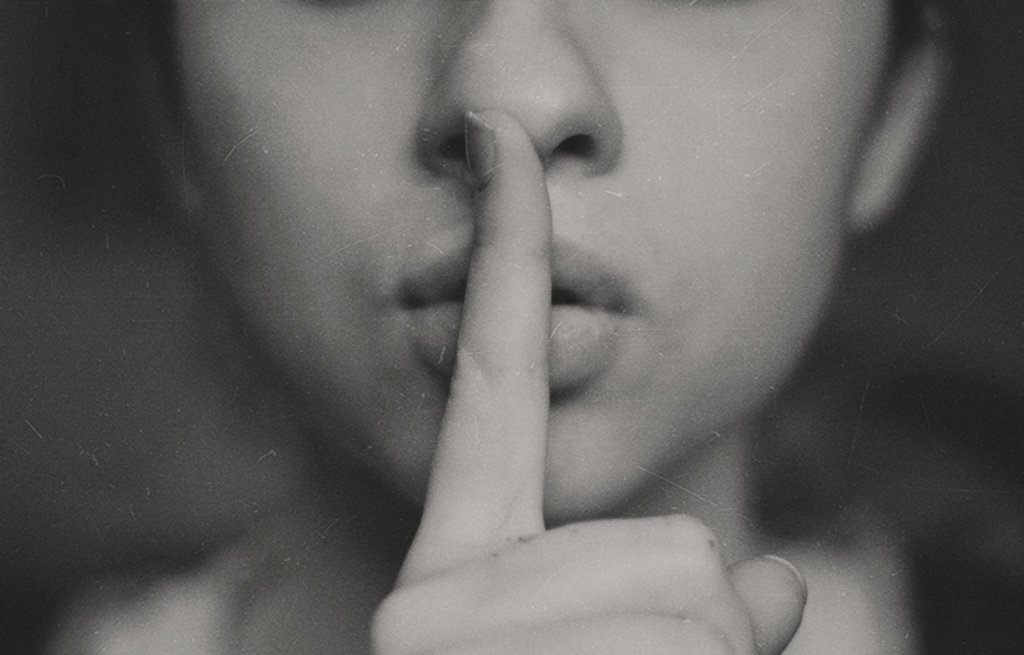
Expression, not repression. Photo by Kristina Flour on Unsplash
Meaning, just by writing about stressful events, by sharing their secrets, patients with asthma and rheumatoid arthritis were clinically, measurably, better off than people who kept their thoughts and feelings bottled up. The effects may have lasted longer than four months, but Smythe and his colleagues didn’t follow up to find out.
As someone who is extremely psycho-somatic, meaning I have a strong link between my mind and body, I already know this information. However, what is news to me is the measurable effects. Not only do people feel better emotionally when they express their internal landscape, but researchers have demonstrated their blood pressure drops, their heart rate decreases, and pain levels decline. That’s really freaking cool if you ask me. I love when science confirms something I know to be true anecdotally.
Why am I writing this post? I think it’s because there are likely people out there saying to themselves, “The past is the past. I’m over it. I don’t need to talk about it. Why dwell on something you can’t change?” For those people, my response is, “You can’t change the past, but you can change how it’s affecting your present. How it’s impacting your body. Expressing a stressful event, even if it’s just in a journal, will help you feel better physically. And you don’t have to take my word for it – researchers have found that to be true as well.”
Not only researchers, but spiritual teachers. In fact, mine says, “It is natural for all living beings to search for a way to express themselves fully. Sometimes this expression takes the form of crude physical pleasure, and sometimes that of subtle psychic pleasure.” He also says, “Repression directly affects the subconscious mind. Gradually the psychic structure is severely damaged, and finally the mind is totally changed. The result is that people are inflicted with a defeatist psychology and an inferiority complex.”
That doesn’t sound great to me. I’d rather be strong physically and mentally. I want to feel happy and free. Who knew that could happen with something as simple as writing in a journal for 15 minutes?
I dream of a world where we recognize repressing feelings and past events takes a toll on our physical, mental, and emotional health. A world where we understand it’s our innate desire to express. A world where we realize we’ll feel stronger and happier if we express what’s going on for us. A world where we understand we are only as sick as our secrets.
Another world is not only possible, it’s probable.
Sometimes I have the expectation of myself that I’ll function like a robot. That no matter the circumstances, no matter how I’m feeling, I’ll be able to accomplish XYZ regardless. And if I’m not able to accomplish XYZ, then I beat myself up and make meaning from it like, “You’re so lazy.” This may sound silly, but what I often forget is that I’m a human and human beings are not robots. We aren’t able to show up the same way every day.
Something my therapist says is, “Everyone is doing the best they can at every moment and sometimes their best sucks.” Yep. I’m doing my best every day and sometimes my best sucks. Sometimes my best entails lying in bed under a pile of blankets watching terrible television because I can’t motivate myself to contact potential new clients. Sometimes my best means my bathroom mirror has flecks of toothpaste on it because cleaning it feels like too much effort.
I see this lack of respecting the natural ebb and flow of each person reflected in society. The other week I wrote about how people are turning into small children, throwing tantrums in grocery stores, and yes, it’s because many of us struggle with feeling our feelings, but I also think it’s because in the U.S. anyway, we forget we’re human and instead we’re being asked to function as if we aren’t. Your kids are home from school? You should be able to accomplish as much work as if they weren’t! Your colleague is out sick with Covid? You should still be able to meet that deadline! Um, no.
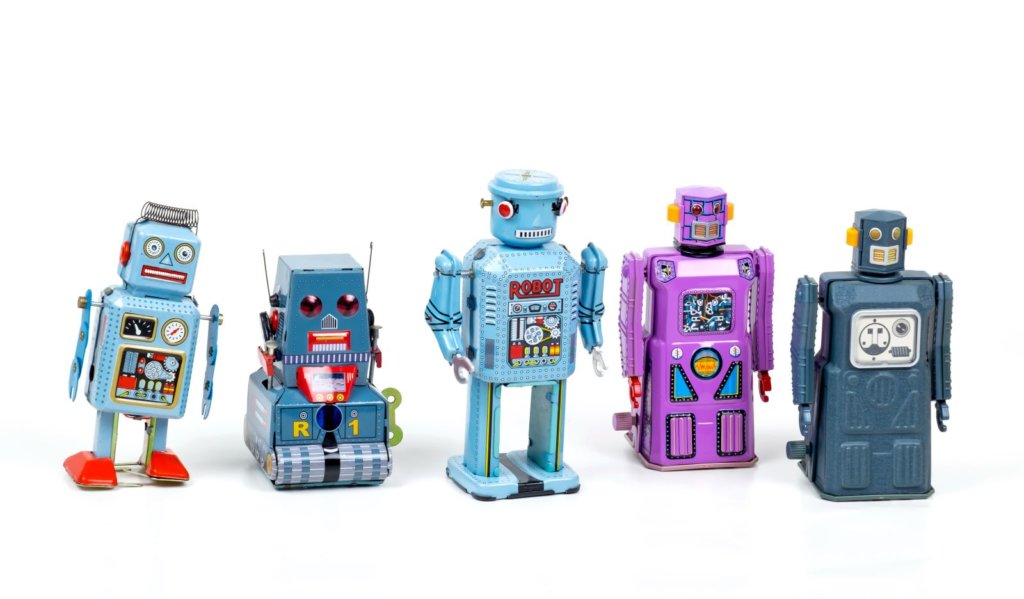
They’re cute, but let’s not aspire to be like them. Photo by Eric Krull on Unsplash
The expectation that life can or will continue as normal even when circumstances change is absurd. We are not robots and it’s not feasible to “power through” everything. Furthermore, maybe we’re not supposed to power through! Maybe we’re supposed to be smart, adaptable human beings that fluctuate day by day. This is something living with a chronic illness teaches me over and over again. Some days I can go for a swim, write for hours, clean my house, make dinner from scratch, and connect with friends. And other days I’m only capable of getting dressed and heating up a premade meal. Both happen and yet I beat myself up on the days I don’t have energy to do as much as I’d like. A lot of it has to do with internalized capitalism, but it’s also because of the expectations I place upon myself.
What if instead I treated myself with compassion and understanding? What if instead I recognized that at some point the bathroom mirror will get cleaned and inspiration will strike to contact potential new clients? Because that always happens. It reminds me of a quote from the late, great, Thích Nhat Hạnh who said, “No one is more worthy of your kindness and compassion than you are,” and also, “Real love means loving kindness and compassion, the kind of love that does not have any conditions.”
Real love for myself and others means recognizing we each have good days and bad days. It means understanding there’s a natural rhythm and cycle to life. It means acknowledging as much as society wants us to be robots, we aren’t. We’re human beings and human beings fluctuate, make mistakes, and have limitations. For better or for worse, we show up differently every day and not only is that OK, it’s natural, normal, and to be expected because again, we’re not robots.
I dream of a world where we treat ourselves with love and compassion. A world where we reduce the expectations we set for ourselves. A world where we understand our best will change from day to day. A world where we remember we aren’t robots.
Another world is not only possible, it’s probable.
Can we take a moment and acknowledge how hard it is to be alive? And in particular to be alive right now? I keep thinking about this New York Times article detailing how in the retail world, adults are acting like children because they are unable to cope with the stress of life. Grown men are screaming because the grocery store is out of the cheese they want. Women are becoming inconsolable because their packages are delayed. In the U.S., and likely other parts of the world, we are not doing well, emotionally speaking.
Many of us don’t know how to handle our feelings and instead turn to something external to cope. For instance, at the start of the pandemic, Forbes posted an article about how people are consuming more alcohol, smoking weed, playing video games, eating a lot of junk food, binge-watching Netflix and adult films more than ever before. But that trend hasn’t stopped. More recently in September 2021, USA Today shared that nearly 1 in 5 Americans are heavily drinking. Heavy drinking is defined as four or more drinks per day for women and five or more drinks per day for men, twice in a single week.
When life feels hard, give us something to feel better. And I get it, I really do. I’m an addict in recovery. I know all about turning to something external to feel better because I did it for years. But does repressing or suppressing emotion work? Ever? For anyone? Or instead are people turning into small children because they’re no longer able to be instantly gratified?
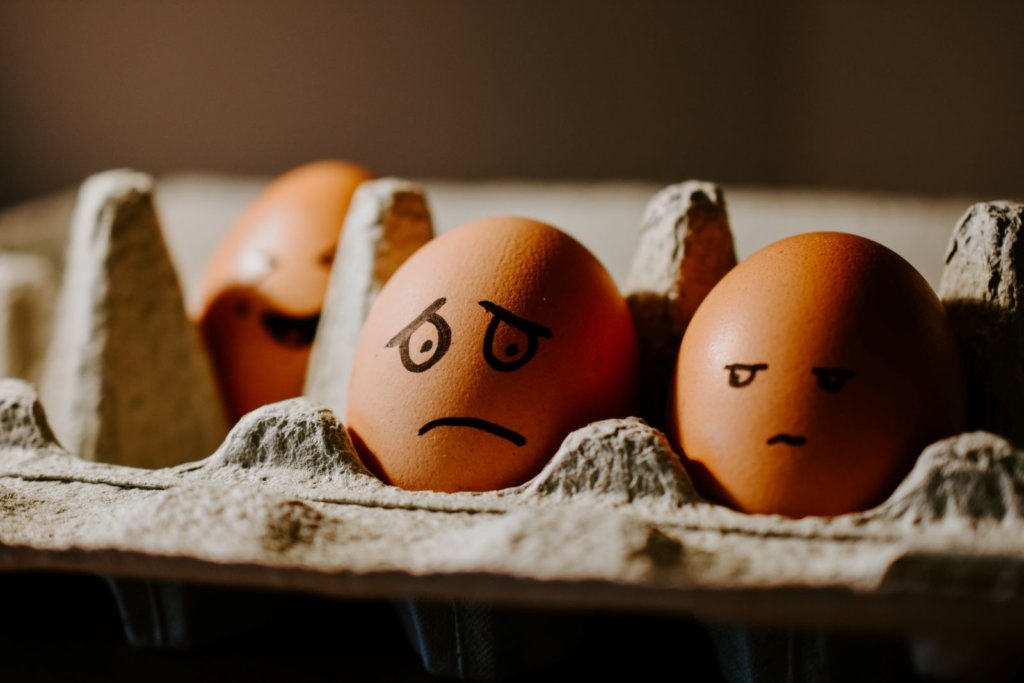
These eggs! So expressive. Photo by Hello I’m Nik on Unsplash
Emotions are meant to be felt. They are a form of energy in our bodies that must be moved, must be expressed. When there’s a loss, the best thing to do is to cry, not get drunk. Tears literally make you feel better because they release the chemicals oxytocin and endorphins. If you’re angry, don’t scream at a grocery store clerk, express it in a safe way by yelling at an empty cup that represents the person who crossed a boundary, or writing a letter you never send, or whatever. Taking out your anger on someone as collateral damage is not OK.
We’ve forgotten how to feel our feelings in this culture because we have so many quick fixes at our disposal. But this pandemic is doing away with those quick fixes, at least some of them. Are we crying about that? Are we weeping for our losses, not only deaths, but the loss of certainty, connection, freedom, normalcy, and more? I know for some people it’s hard to cry or it may not feel safe to cry. If that’s you, you’re not alone. I highly recommend checking out the Westfeldt Institute for Emotional Hygiene because this is what they specialize in – emotional regulation. You can also listen to season one of the podcast “The Healing Feeling Shit Show.”
Feeling your feelings not only helps you, but it helps others. The world needs more adults. We’re witnessing what happens when inner children are at the helm and it’s not pretty. Being an adult is not only about making money, it’s also knowing what to do when you feel scared, angry, or sad. I have zero interest in being screamed at because I looked at someone funny and I have zero interest in retail clerks consoling a customer because the shop ran out of dish soap. Can we not? Can we instead feel our feelings? It’s not always easy but it’s worth it.
I dream of a world where we practice emotional regulation in healthy ways. A world where we feel our feelings as they arise. A world where we take care of ourselves and each other by acting like adults when life gets challenging. A world where we know what to do when we have a feeling.
Another world is not only possible, it’s probable.
If you’re anything like me, you’ve heard something to the effect of, “It only takes one person to feel grounded and safe in a crowd to change the atmosphere for everyone else.” It’s a nice sentiment, but is it just a bunch of hokey-pokey b.s.? Can little ole me really have that kind of effect on other people? It turns out, yes.
Emotions are contagious just like colds and scientists think this “emotional contagion” is due to the mirror neuron system. Essentially, when you do something yourself and watch someone else do that exact activity, the same neurons are firing, aka, mirror neurons. Pretty cool right? So how then do emotions catch on? According to this article in Healthline, it happens in three stages: mimicry, feedback, and experience.
Mimicry is just what it sounds like: mimicking someone else. If I smile at you, chances are you’re going to smile back at me. However, typically your reaction is not conscious. It’s happening automatically. But that mimicry has a ripple effect and creates feedback in the brain and body. For instance, if you’re mimicking my smile, even if originally you felt cranky, just by smiling, you’ll feel happier. And that feedback will create a response in you so that you actually are feeling happier. That’s the experiential part of emotional contagion. You mimicked me, created feedback for yourself, and thus “caught” the emotion I’m expressing.

I don’t know about you, but looking at these folks makes me smile! Photo by Siviwe Kapteyn on Unsplash
What fascinates me about this process is not only the one-on-one contagion, but also the group contagion. We see this with mob mentality, or herd mentality when people are influenced by their peers to adopt a behavior or viewpoint on a largely emotional basis. What we’re all creating is a collective mind. We’re syncing our minds up and this happens whether we want it to or not.
The question then becomes, what to do about that? My spiritual teacher says, “The collectivity is yours. The collectivity is not outside you – your future is inseparably connected with the collective fortune. You must take the entire collectivity with you and move toward the sweetest radiance of the new crimson dawn, beyond the veil of the darkest night.”
Later on, he says, “Now, changes will have to be effected in the mental flow of this collective mind; you will have to create a new wave of thought in it. Because of the manner of human thinking thus far, the pace of human progress has been painfully slow. If it is given a new direction, the speed of progress will be greatly accelerated.”
Frankly, I’m all for moving toward the sweetest radiance of the new crimson dawn and accelerating the speed of human progress. And that means how I feel, how I act, matters. How you interact with other people has an impact. It transmits something and together we create something that wouldn’t have been there before. We are each contributing to a collective mind. But what are we contributing? Is it something that will move humanity forward to a state of equity, justice, love, and respect? Or is it something that creates more discrimination, inequality, and division? Knowing about emotional contagion, what will you choose?
I dream of a world where we recognize how we feel, what we express really does matter. A world where we allow ourselves to be authentic, but also understand we affect and even infect those around us. A world where we are conscious about what we’re contributing to the collective mind because we understand emotional contagion is real.
Another world is not only possible, it’s probable.
Sometimes I think the expression, “Don’t just do something, sit there,” was made for me. I’m not prone to inertia and people often describe me as “tenacious” and “hard-working.” That’s true, and it means I have trouble with the reverse: giving up.
I don’t know when to let go, not only of people and relationships, but also situations. It’s confusing because the message society sends over and over again is, “Don’t give up! Keep going!” Except, that’s not working for me. To give a small example, I’ve queried 55 literary agents since February 2020 for a romantic comedy I wrote and thus far, every single one of them has said, “No.” I’m still waiting to hear back from three agents, but I don’t feel all that hopeful. At the moment, I don’t have the energy to keep pursuing an agent for this book.
Instead of telling me, “Try harder!” my therapist recommended I take a break and let myself feel what arises when I do so, which is disappointment. He says it’s important for all human beings to deal with disappointment, to cry, and not keep trying to “fix” whatever is causing the disappointment. After shedding those tears, then perhaps there will be a new energy, a brainstorm for approaching the issue differently. Regardless, compulsive trying only results in frustration for me. That makes sense when you consider the five Buddha families, also called the five wisdom energies, which are Buddha, Vajra, Ratna, Padma, and Karma.
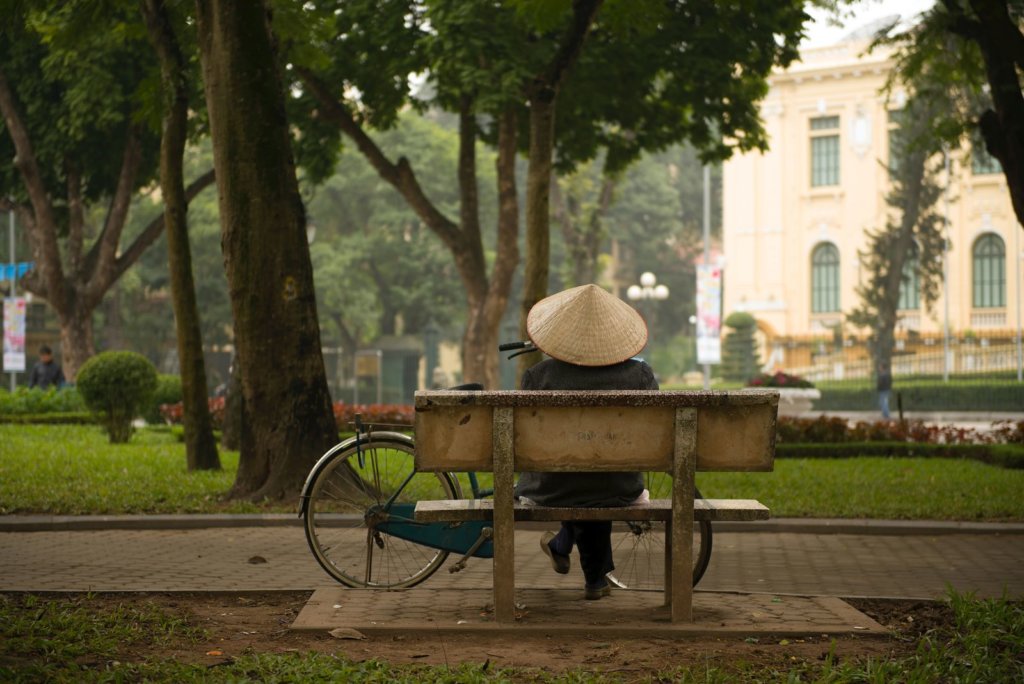
There’s power in pausing. Photo by Lukasz Saczek on Unsplash
Each person has a predominant Buddha family with strengths and weaknesses. For instance, Vajra family people have an aptitude for mental clarity and the ability to correct any distortions. They are scientific, logical. But when they are encumbered, when their energy is bound up, they can become angry, judgmental, and critical.
All of the Buddha families speak to me, but the one I align with the most is the Karma family. Karma family people are hard-workers, they know how to get things done. When their energy is encumbered, they become envious, comparing themselves with others and finding themselves lacking. (Did you laugh upon hearing that? I know I did because the description is so apt.) The meditation for a Karma family person is to be in the flow, to think about the wind picking up a sail so that it moves with ease, not force. In other words, the practice for people like me is to take inspired action, not compulsive action.
I’ll admit, that’s so freaking hard because my compulsive doer is strong, but taking inspired action seems to be the message I’m receiving over and over again. The universe seems to keep telling me, “Pause, my dear. Just pause.” This is also in alignment with my spiritual philosophy because my teacher says, “[M]ovement through speed and pause is an essential factor for each and every animate or inanimate object. Wherever there is existential factor there must be this pulsation. An entity acquires strength and stamina during the pause phase, and emanates vibration during the speed period. There cannot, however, be any absolute speed or absolute pause in the created world.”
In other words, I’m paused now but it won’t be permanent. I just have to wait for wind in my sails.
I dream of a world where we recognize the power of pause. A world where we understand constantly doing all the time is a recipe for burnout. A world where we learn to take inspired action and until that inspiration strikes, we rest easy, knowing our time will come.
Another world is not only possible, it’s probable.
